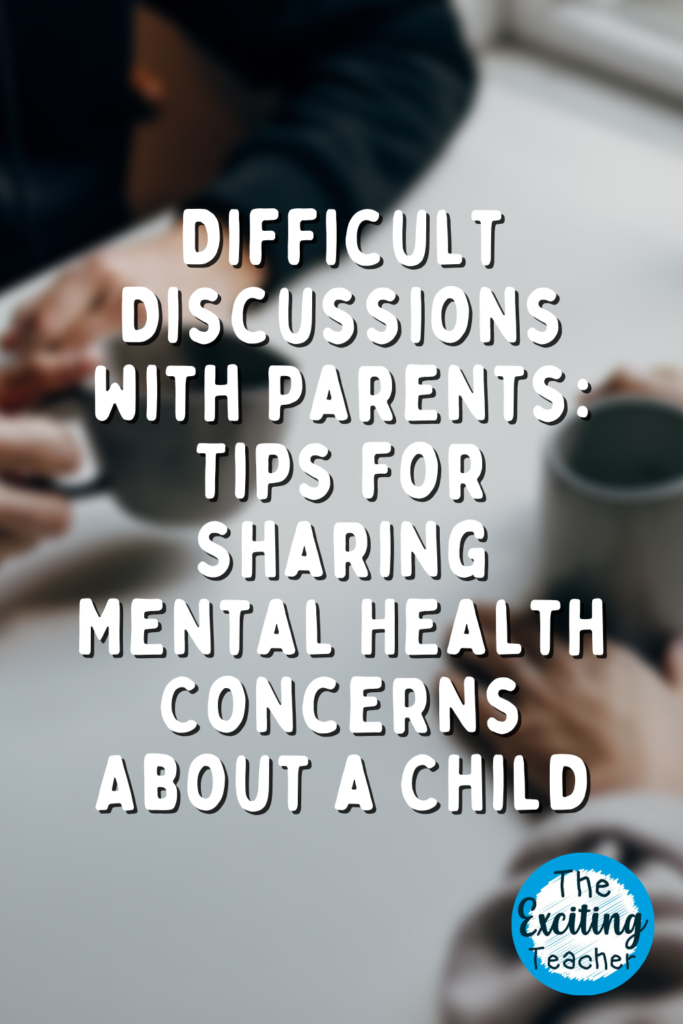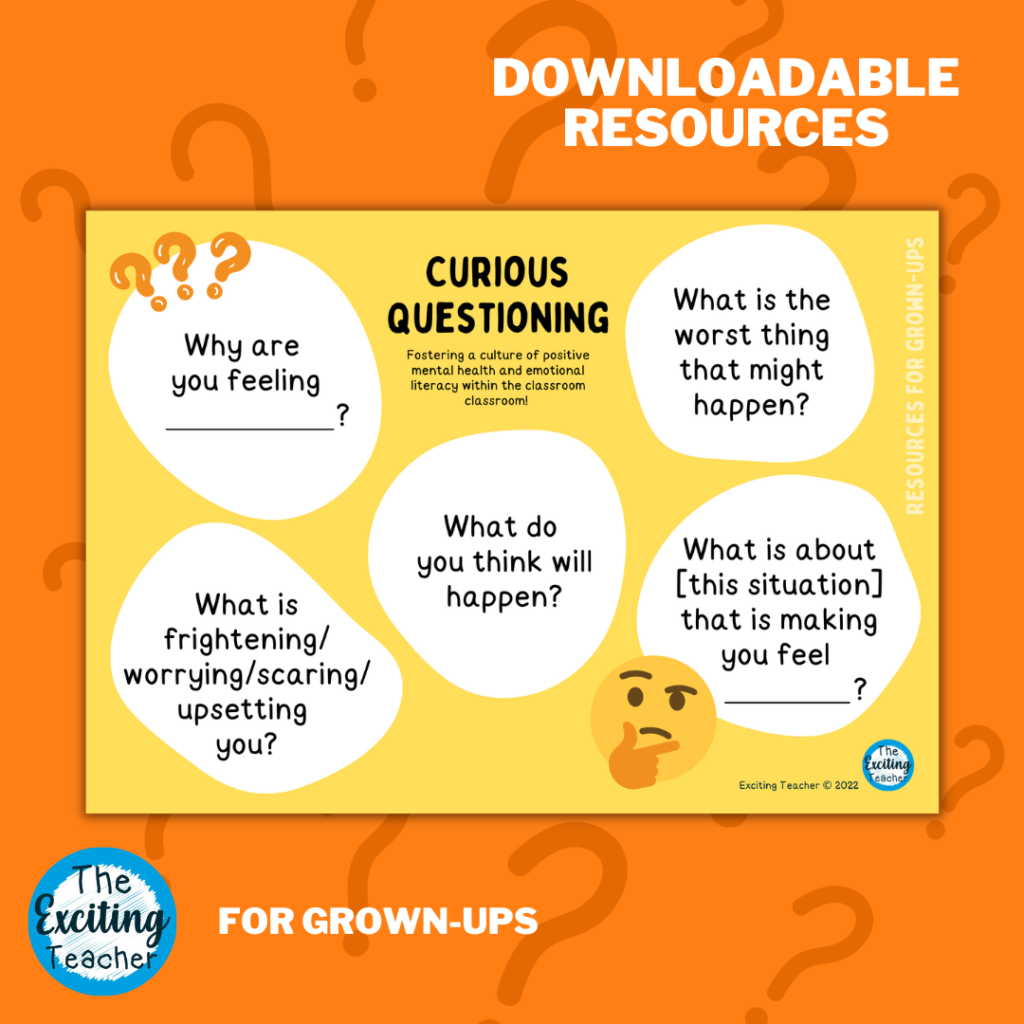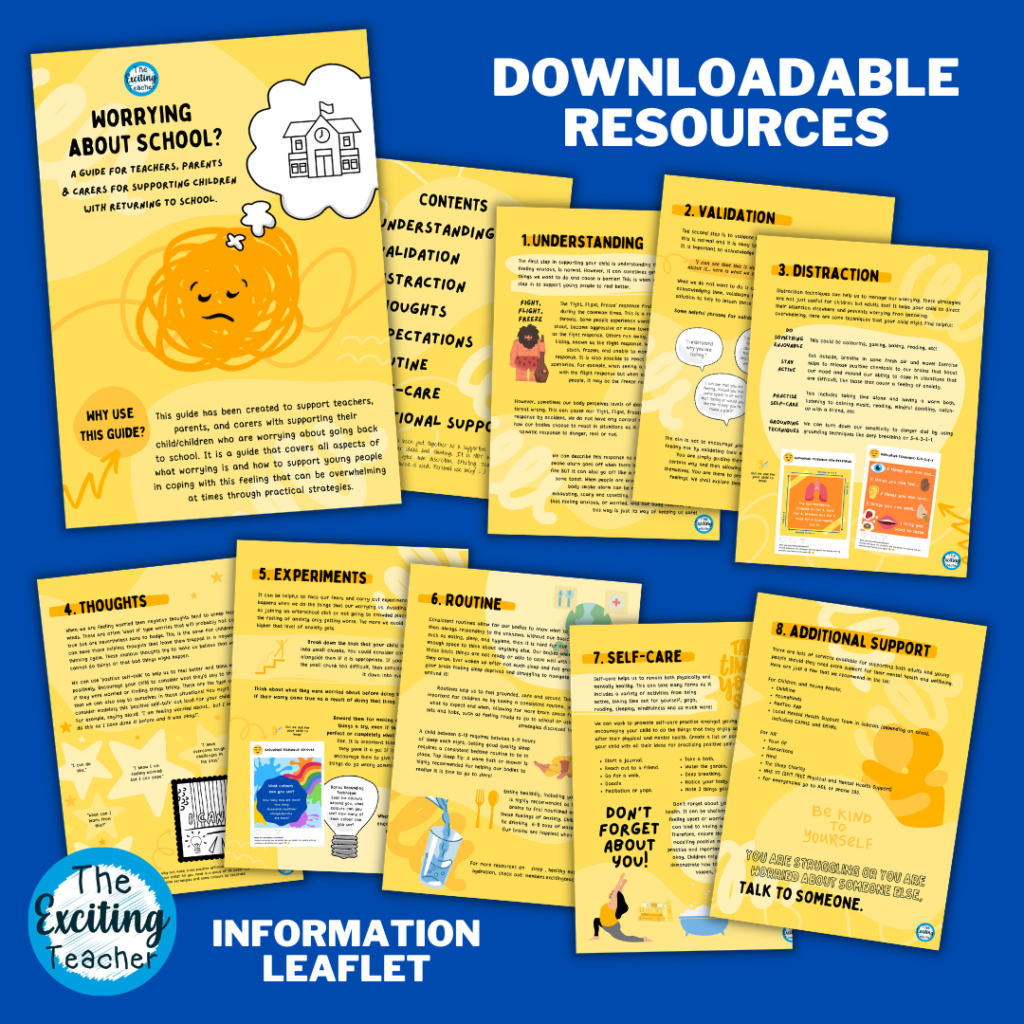Difficult discussions with parents can feel challenging to navigate, especially when it is about their child’s mental health. As a Former Teacher and current Education Mental Health Practitioner (EMHP), I understand the importance of addressing concerns related to a child’s mental health with utmost care and sensitivity.
Here are some tips, guidance, and support ideas for you, the Teacher, Headteacher, Pastoral Lead, SENDco, or ELSA, to navigate a difficult conversation with a parent when you have concerns about their child’s mental health:
1. Create a safe and non-judgmental environment:
- Ensure the meeting takes place in a private, confidential, and comfortable setting, away from distractions.
- Be sure that the parent or carer has an appropriate amount of time to meet with you.
- Begin by expressing empathy and understanding, emphasising that the school and yourself are committed to supporting the child’s well-being.
2. Before having difficult discussions with parents, gather relevant information:
- Prior to the meeting, gather any available information about the child’s behavior and performance in school.
- Consult with the class teacher, school pastoral team, or any other relevant staff members to gain a comprehensive understanding of the situation.
3. Active listening and open communication:
- Listen attentively to the parent or carer, allowing them to express their concerns and emotions freely.
- Demonstrate empathy and understanding, acknowledging their perspective and emotions.
- Encourage open dialogue, asking open-ended questions to gain further insight into the child’s behaviour at home and school, as well as any potential triggers.
4. Provide signposting information and resources:
- Offer information about the school’s policies and procedures for supporting students’ mental health.
- Share any relevant resources, such as information about local mental health services, services available to access through the school, helplines, or support groups available for parents and families.
5. Offer collaborative solutions:
- Collaborate with the parent to identify potential underlying causes of the child’s behavior changes and withdrawal, such as academic challenges, bullying, or family issues.
- Suggest creating an action plan together, involving both the school and the parent, to support the child’s well-being.
- Explore potential strategies or interventions that can be implemented both at home and at school.
6. Seek external support, if needed:
- Where appropriate, recommend seeking external support from mental health professionals, such as child psychologists, EMHPs, CWPs, Educational Psychologists, or therapists.
- Provide a list of local services or organizations that specialize in supporting children and families with mental health concerns.
- Helpful signposting services include:
7. Offer regular follow-up and monitoring:
- Establish a plan for regular follow-up meetings to assess the child’s progress and make any necessary adjustments to the support plan, if putting one in place.
- Maintain open lines of communication with the parent, ensuring they feel supported and informed throughout the process.
- Agree on a set of actions for each representative attending the meeting to complete. This will ensure that, after having these difficult discussions with parents or carers, everyone leaves the meeting with a clear plan of action to complete to help the child.
- Follow through with any agreed actions from the meeting, such as referrals to relevant signposting organisations or resources.
Remember, it is crucial to approach these difficult discussions with parents, or tricky challenging conversations, with a non-judgmental and supportive mindset, while prioritising the child’s well-being.
I hope that these tips are helpful for any difficult discussions with parents that may arise. If you have any further helpful advice to fellow Teachers and Education Staff, please get it contact so we can share that wisdom with our readers!
Find our other blog posts here.

Article contributed by: Channon Gray
Exciting Teacher Founder, Former Primary School Teacher & Current NHS Education Mental Health Practitioner (EMHP).
Helpful Resources:
Share on:
Pin this:




